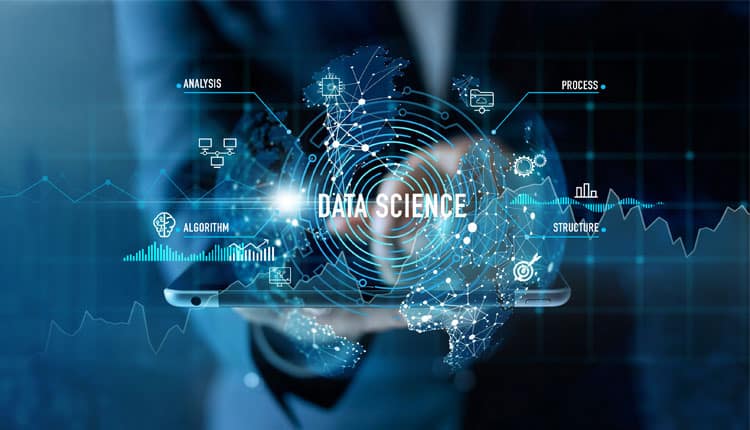In today’s digital era, data is everywhere. From the apps we use daily to the transactions we make, data is being generated at an unprecedented rate. But raw data alone is not enough. It requires the touch of skilled minds to transform it into valuable insights that can drive decision-making and spark innovation. This is where data science comes into play, and its role in shaping the future of innovation cannot be overstated.
What is Data Science?
At its core, data science is a multidisciplinary field that uses scientific methods, algorithms, and systems to extract knowledge and insights from structured and unstructured data. It merges aspects of mathematics, statistics, computer science, and domain expertise to help make informed decisions. Data scientists play a pivotal role in uncovering trends, patterns, and correlations within data, which businesses and organizations can use to create innovative products, improve services, and make smarter strategic decisions.
The Rise of Data Science
In the past few decades, the explosion of the internet and the rise of smart technologies like smartphones, IoT devices, and cloud computing have created an enormous amount of data. This rise in data production led to the need for advanced analytics, resulting in the rapid growth of data science.
The global push toward digitization in nearly every industry has made data science more critical than ever before. From healthcare to finance, retail, and even entertainment, data science is transforming industries by providing them with the tools to leverage data for competitive advantage.
How Data Science Drives Innovation
- Predictive Analytics: Shaping the Future
Predictive analytics is a field within data science that leverages historical data to forecast future events or outcomes. By analyzing past behaviors, trends, and patterns, businesses can forecast future demands and prepare accordingly. For instance, in retail, predictive analytics helps companies stock products in line with future demand trends, minimizing waste and optimizing profits.
Predictive analytics is also playing a huge role in healthcare innovation. With massive data sets that include patient histories, genetic information, and treatment outcomes, predictive models can now foresee potential health risks. This allows for personalized medical care, which can significantly improve patient outcomes and reduce healthcare costs. - AI and Machine Learning: The Engines of Innovation
Artificial Intelligence (AI) and Machine Learning (ML) are two powerful tools within data science that are leading innovations across industries. ML algorithms allow systems to learn from data without explicit programming. The more data the algorithms process, the better they perform.
From self-driving cars to voice-activated assistants, AI and ML are at the heart of some of today’s most groundbreaking innovations. For example, Tesla’s autonomous vehicles rely heavily on machine learning algorithms to understand their environment and make real-time driving decisions. Similarly, AI-powered tools like chatbots are revolutionizing customer service, providing instant responses and learning from interactions to offer better support over time. - Data Science in Finance: Redefining Risk Management
In finance, risk management has always been a critical function. With the advent of data science, financial institutions now use advanced analytics to detect fraudulent activities, predict market trends, and evaluate creditworthiness. Data science enables firms to analyze massive amounts of financial data in real-time, offering better security and efficiency in financial transactions.
Furthermore, fintech companies are leveraging data science to create innovative financial products, such as personalized investment portfolios and AI-driven trading systems. These innovations are providing individuals with better financial solutions, improving accessibility, and democratizing the financial landscape. - Data Science in Healthcare: Precision Medicine and Beyond
Healthcare is one of the most promising fields where data science has made a significant impact. With vast amounts of data available from patient records, clinical trials, and medical devices, data scientists can now create more personalized treatment plans for individuals.
One area of innovation is precision medicine, where data science helps tailor treatments to a patient’s unique genetic makeup, lifestyle, and environment. This approach has already seen success in the treatment of cancer, where data-driven methods help identify the most effective therapies for patients. Additionally, AI-powered diagnostic tools are revolutionizing medical imaging, helping doctors detect diseases like cancer and heart conditions earlier and more accurately. - Data Science in Marketing: Hyper-Personalization and Consumer Insights
Marketing is another area that has been transformed by data science. With access to vast amounts of customer data, companies can now understand their audience better than ever before. This leads to hyper-personalized marketing campaigns, where advertisements and content are tailored to an individual’s preferences and behaviors.
Companies like Amazon and Netflix use data science to recommend products or shows based on user activity. This has not only improved customer experience but also increased customer loyalty and sales.
The Future of Data Science: Emerging Trends
- The Rise of Edge Computing
Edge computing involves handling data close to where it’s generated, such as on local devices or sensors, instead of depending on a central cloud server. This approach minimizes latency and enables quicker decision-making. As more devices become connected through the Internet of Things (IoT), edge computing will become increasingly essential. - Data science will play a crucial role in managing and analyzing this decentralized data, driving innovations in smart cities, autonomous vehicles, and real-time analytics.
- Ethical AI and Data Privacy
As data science continues to grow, concerns around data privacy and the ethical use of AI have become more prominent. While AI and data analytics offer incredible potential, they also raise questions about bias, transparency, and accountability.
The future of data science will likely see a greater emphasis on building ethical AI systems and ensuring data is used responsibly. This will involve developing guidelines and policies that govern
data usage and protect individual privacy. - Automation of Data Science Processes
As technology advances, many data science tasks are becoming automated. Automated machine learning (AutoML) platforms allow non-experts to build and deploy machine learning models, lowering the barrier to entry for businesses. This trend is democratizing data science, enabling smaller organizations and individuals to harness the power of data without needing extensive technical expertise. This rise of automation will free data scientists to focus on more complex and strategic tasks, further driving innovation.
Conclusion
Data science is revolutionizing industries like healthcare, finance, and marketing by offering new insights and innovative solutions. To stay competitive in today’s data-driven world, pursuing a Data Science Training Course in Lucknow, Nagpur, Delhi, Noida, and other cities across India is crucial. By mastering data science, individuals can help drive the future of innovation, enabling businesses to make smarter decisions, create personalized services, and optimize operations across various sectors.


